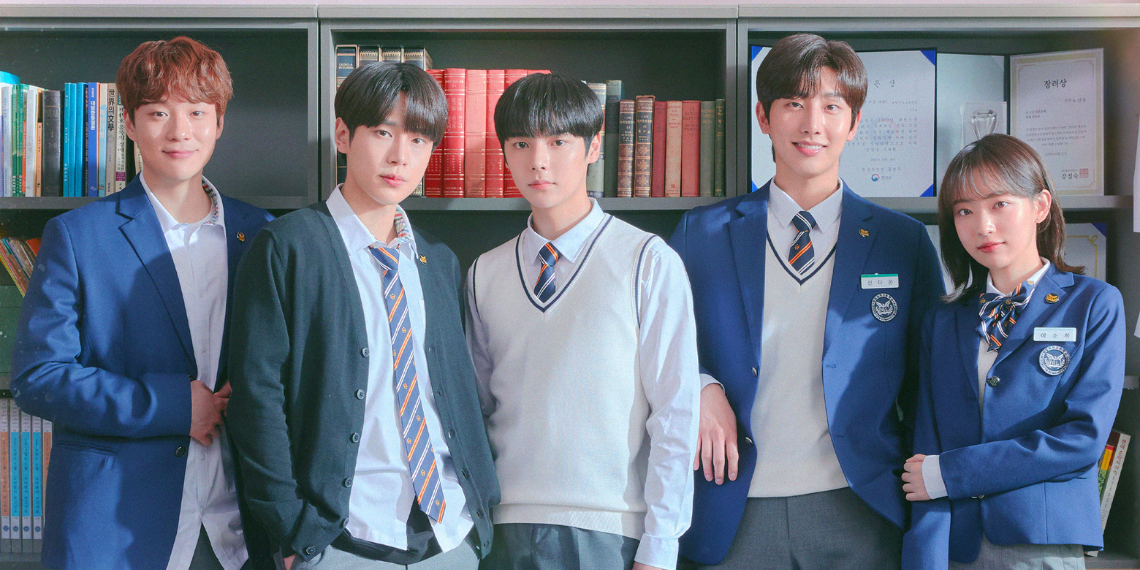Pride Month is the perfect time to spotlight stories that embrace love in all its forms. Korean BL and GL dramas have been carving out space in the industry with titles that are subtle, poetic, and full of heart.
In this article, let’s explore how some BL (Boys’ Love) and GL (Girls’ Love) K-dramas are titled in Korean, and how those titles add meaning to the story. Whether you’re here to learn Korean or find your next watchlist pick, there’s a bit of both waiting below!
1. Love in the Big City –대도시의 사랑법 (dae-do-si-ui sa-rang-beop)
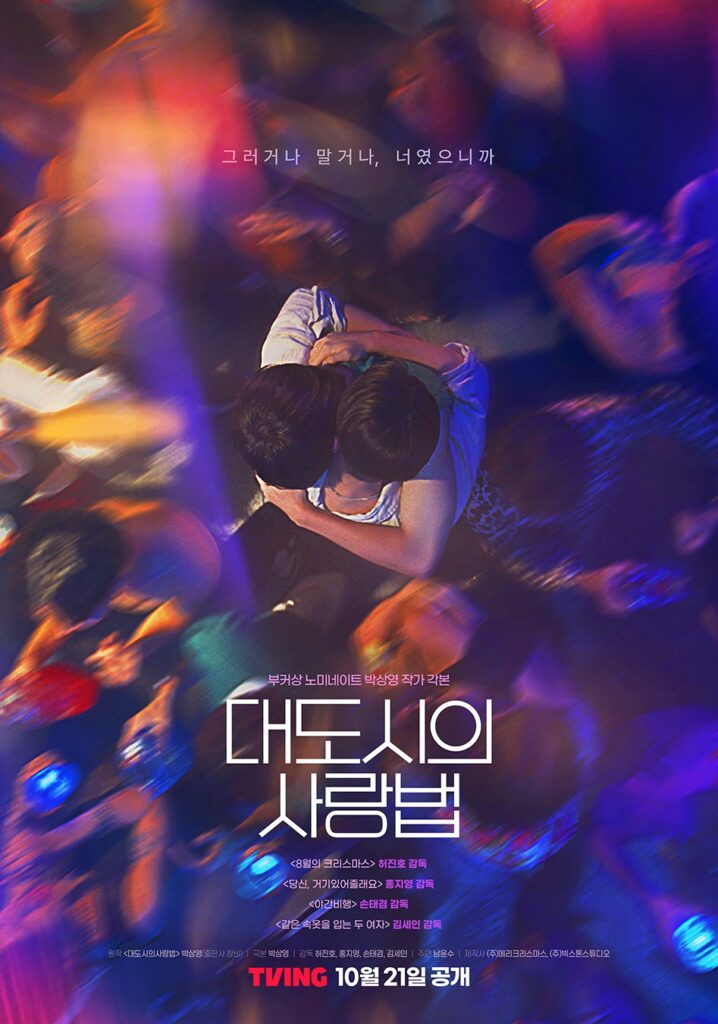
This drama is based on a novel of the same name, and its title translates to “The Laws of Love in a Big City”. The Korean title sounds a bit literary and philosophical, hinting that this isn’t a typical romance.
It’s a poignant story exploring queer identity, love, and loneliness in the fast-paced life of Seoul. The use of ‘법’ (beop), which means law or method, gives a reflective tone, suggesting that everyone has their own way of navigating love.
Vocabulary:
- 대도시 (dae-do-si) – big city
- 사랑 (sa-rang) – love
- 법 (beop) – law/method/principle
2. Sing My Crush – 따라바람 (tta-ra-ba-ram)

The Korean title 따라바람 (tta-ra-ba-ram), literally means “follow the wind”. It’s a poetic play on words, as 바람 (ba-ram) means “wind” and is also the name of one of the main characters. The title beautifully reflects the soft and emotional journey the story takes, quiet, like the wind, yet impactful.
It’s a sweet tale of friendship, loyalty, and the slow discovery of deeper feelings, and how music can become a bridge between two hearts.
Vocabulary:
- 따라 (tta-ra) – to follow
- 바람 (ba-ram) – wind (or a name)
3. Friendly Rivalry – 선의의 경쟁 (seon-ui-ui gyeong-jaeng)
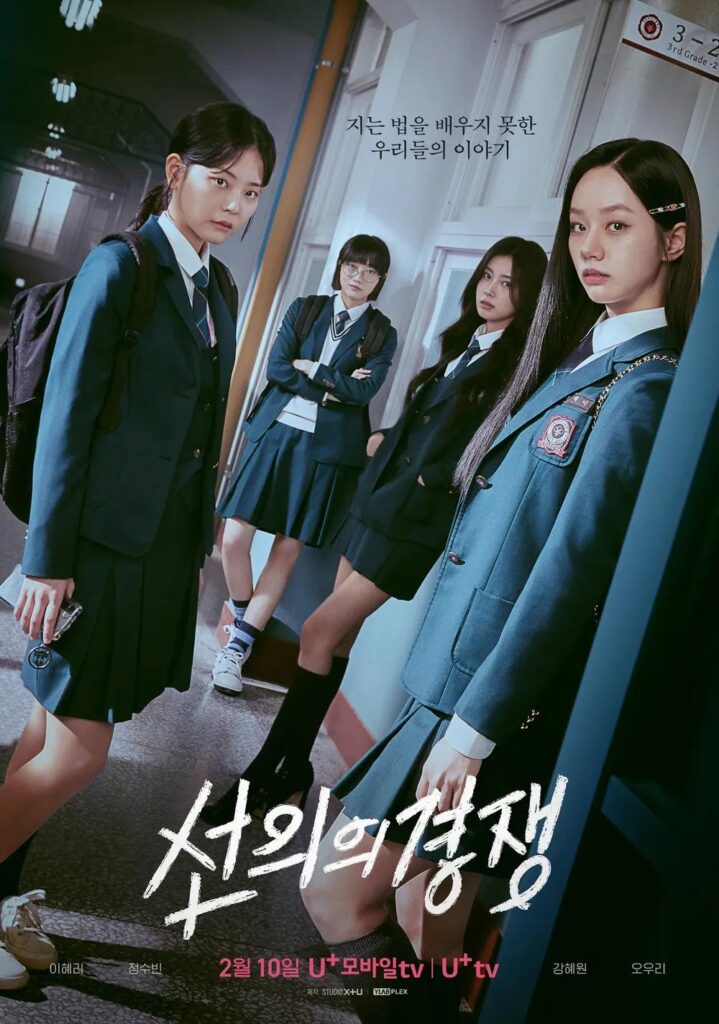
Set in a prestigious girls’ high school, this story blends mystery, academic pressure, and complex emotions between two top students. The title means “competition of goodwill”, but beneath that, it’s layered with jealousy, tension, and subtle attraction.
It’s a great case where the title sounds light and harmless, but the drama delivers emotional depth.
Vocabulary:
- 선의 (seon-ui) – goodwill
- 경쟁 (gyeong-jaeng) – competition
4. Light On Me – 새빛남고학생회 (sae-bit-nam-go-hak-saeng-hoe)
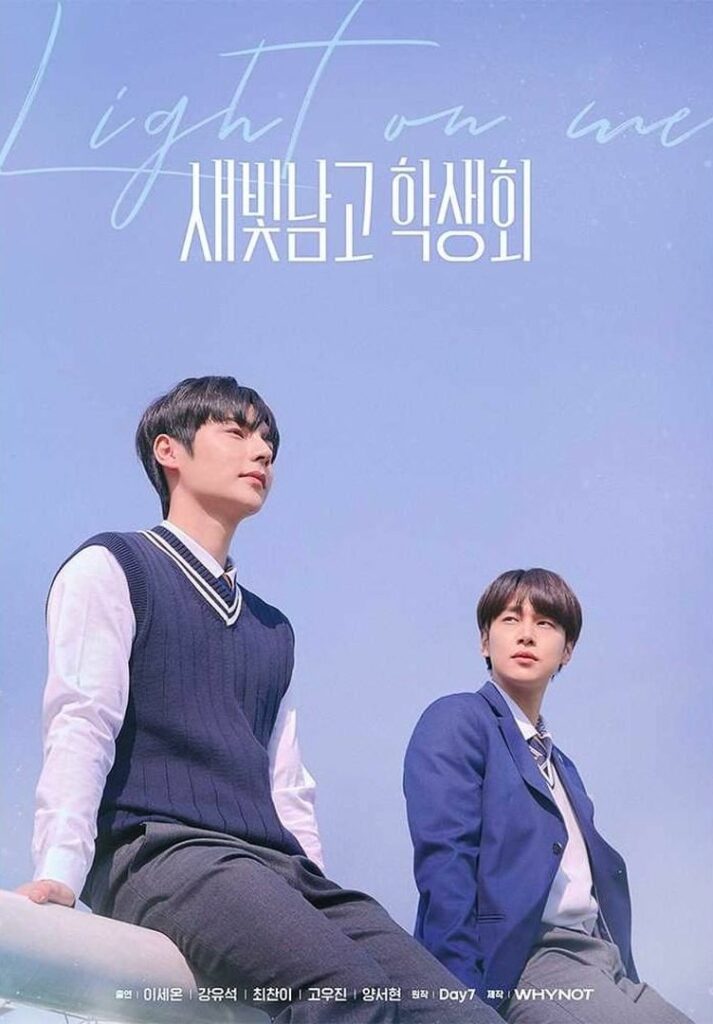
The Korean title literally means “Saebit Boys’ High School Student Council”. It sounds like a typical school drama, but the story dives into themes of identity and love.
The English title ‘Light On Me’ is more symbolic, showing how the main character begins to open up and discover himself.
This is a great example of how Korean titles are often more descriptive, while English ones tend to be rather poetic.
Vocabulary:
- 새빛 (sae-bit) – fictional school name, but it means “new light”
- 학생회 (hak-saeng-hoe) – student council
- 남고 (nam-go) – short for 남자 고등학교 (nam-ja go-deung-hak-gyo) – boys’ high school
5. Cherry Blossoms After Winter – 겨울 지나 벚꽃 (gyeo-ul ji-na beot-kkot)
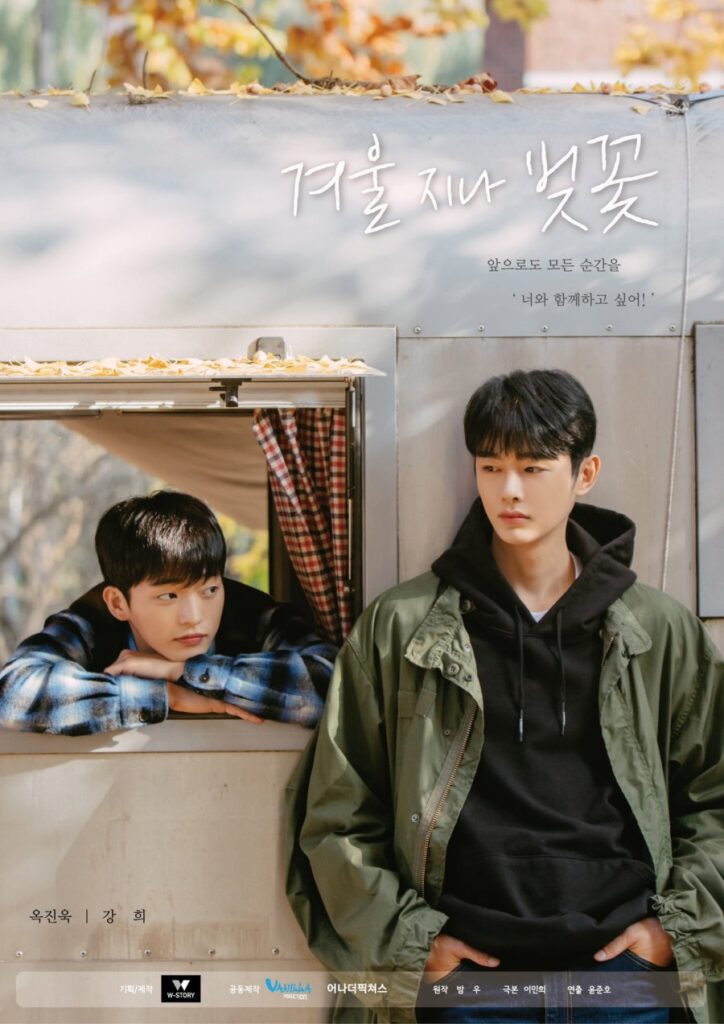
A poetic and symbolic title that reflects the healing and blooming of emotions after a cold, lonely season. This drama follows two boys who start living together under one roof and slowly navigate the blossoming of feelings.
The image of cherry blossoms blooming after winter mirrors the characters’ inner growth and the gentleness of first love.
Vocabulary:
- 겨울 (gyeo-ul) – winter
- 지나 (ji-na) – after/passing
- 벚꽃 (beot-kkot) – cherry blossoms
These titles remind us how words carry deeper meaning, and how K-dramas often reflect identity, love, and self-acceptance in subtle ways.
Whether you’re here for the language or the stories, this Pride Month, let’s celebrate love without labels.
Because 사랑은 사랑이니까요. (sa-rang-eun sarang-i-ni-kka-yo) – “Because love is just love”.
Written by Surabhi
Connect with us on Instagram | X | YouTube for more content, interviews, & news.

